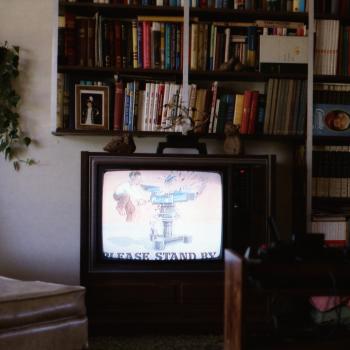 It was my eleven-year-old’s turn to pick a movie, and he chose The Hobbit, just as his thirteen-year-old brother had done a few weeks before. The full title of the movie is: The Hobbit: An Unexpected Journey, and believe me, I never expected I’d be journeying to the theater to watch it a second time.
It was my eleven-year-old’s turn to pick a movie, and he chose The Hobbit, just as his thirteen-year-old brother had done a few weeks before. The full title of the movie is: The Hobbit: An Unexpected Journey, and believe me, I never expected I’d be journeying to the theater to watch it a second time.
I’m very impatient with people who take a long time to tell a story, because I believe my time belongs to me. My aesthetic sense, further, favors an economy of verbiage, excepting, of course, my own pretty, pretty words.
More than once I’ve groaned inwardly, while listening to someone recount some event that matters far more to him than to me, thinking it would have taken less time to live through it myself than to suffer through his interminable telling.
This is petty and selfish of me, and so perhaps, in my Hobbit odyssey, God is teaching me patience for epic recountings.
There’s a valuable detachment one can achieve when watching the same film twice in fairly close succession. I was searching for a term for this, because it’s not a suspension of the suspension of belief that I’m trying to name, but rather a change in what one notices.
I remember from one of my miserable forays into calculus that when we want to measure not the rate of change in something, but rather how quickly its rate of change is changing, we call that measure its “second moment.”
A “moment” in mathematics represents the effort to understand a function’s properties, with higher moments representing higher dimensions or abstractions. We might want to know not just the distribution of a function’s possible values, for example, but the lopsidedness of the curve that represents this distribution, or, still further removed, how fat or skinny that lopsidedness is.
When one steps back from the object of interest in order to understand higher-level truths about it, one takes the second moment, the third moment, and so on. It pleases me that mathematicians, like artists, must take a moment to perceive something more deeply.
Taking a second moment of The Hobbit, for example, afforded me a chance to see its wobbliness—the way it veers between Tolkien’s profundity (“Saruman believes it is only great power that can hold evil in check, but that is not what I have found. I found it is the small everyday deeds of ordinary folk that keep the darkness at bay.”) and the ineptitude of its modern handlers, as evidenced, for example, in the silly dying words ad-libbed by the actor who plays the Goblin King (“That’ll do it.”).
What struck me most, however, was the way Gandalf commanded the troupe at critical moments. “Fight!” he shouts, at a point when continued submission was a plausible alternative. “Run!” he shouts minutes later, when a reasonable dwarf might have thought standing and fighting preferable.
I wish I had someone to do that for me, I thought.
One benefit of years spent in a conservative evangelical environment is that you carry about a church-lady voice to weigh in at opportune moments, that you might have delivered to your shoulders the due weight of guilt and remonstration. You do have someone to do that for you, says this familiar voice. It’s called the Holy Spirit.
Now, perhaps your church-lady voice is nicer than mine, so I need to explain that she wasn’t offering encouragement. What she really meant was: If you were a better Christian, you would hear the Holy Spirit whenever you need guidance.
I suppose she’s right. In the book of Acts, Peter knew (because the angel said so) to light out from prison when his chains fell free. Only four chapters later, however, Paul knew to stay put when his chains fell off. Somehow he intuited that the right response, as the earthquake wrenched his prison door from its hinges, was to stay put. I would have headed for the high country, certain that the earthquake was God’s signal to put into action the plan I already had in mind.
If you were a better Christian...
I saw a book called The 10-Second Rule: Following Jesus Made Simple. I rolled my eyes, because anybody knows following Jesus can’t be simple. If it were simple, everybody would do it.
In fairness to the author, Christ did promise an easy burden, a light yoke. Maybe following Jesus is easy. Maybe we just complicate it.
But isn’t there also something about having trouble in this world, and being hated by this world, and taking up one’s cross to follow Jesus in this world? God knows where you end up, should you take up that cross.
Yes, I suppose God does know. Christ’s yoke is light enough; it’s the world that weighs us down. It’s the world’s weight and venom that deaden our limbs, that cause us to neglect the obvious commands even as we crave signs.
Mathematicians use moments to see more fully, and maybe every soul can be understood better this way. If my first moment is reticence and fear, maybe my second moment is a desire to not be as I am, and the third moment is the beginnings of a change, and the fourth moment is those beginnings growing stronger.
Maybe I, maybe you, maybe all of us who labor are moving farther than we feel, only we haven’t taken the right moments to see.











